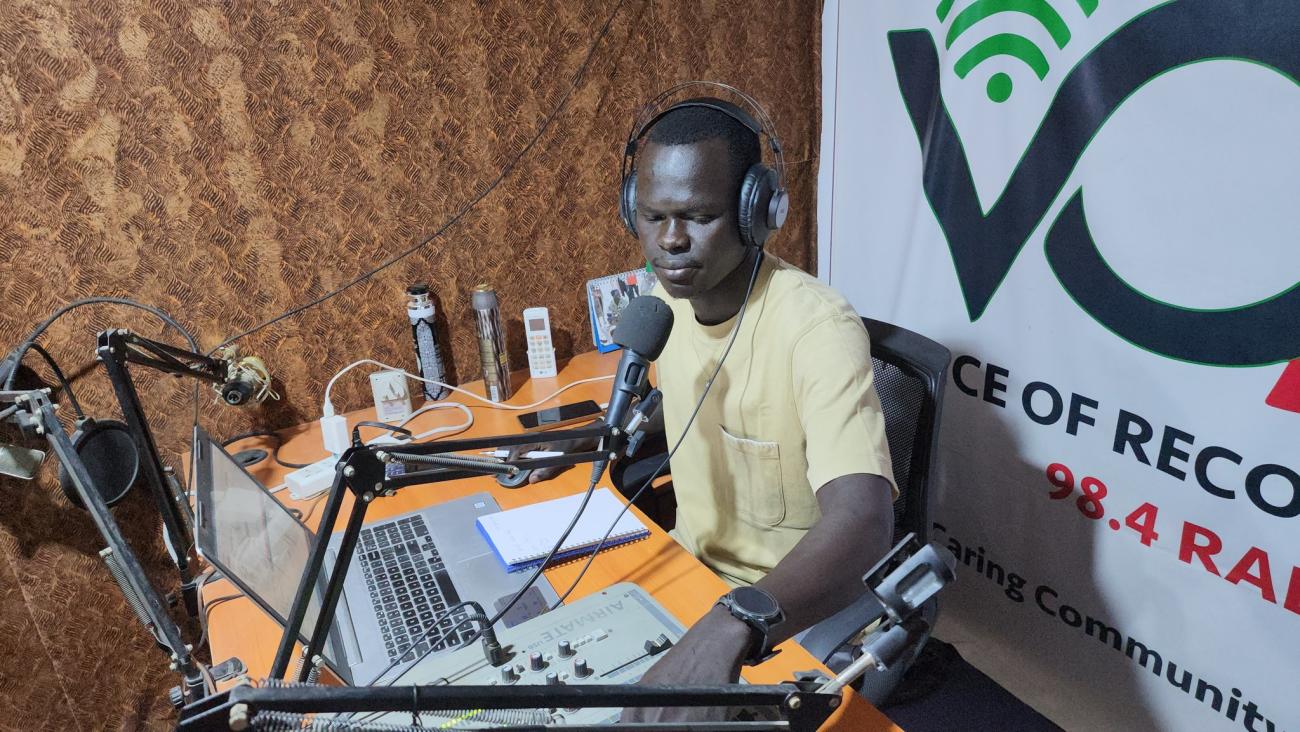Communication is one of the key ingredients that fuel national development. Through critical thinking, and exchange of information, societies are built and living standards are improved. It is an absolute fact that radio plays a critical role in society and forms part of the critical communication channels that communities rely on to disseminate information that targets various audiences and purposes.
Radio acts as a reasoning platform, daily, people make hundreds of calls to radio stations, to share ideas and contribute to nation-wide discussions. A lot of people listen to radio, primarily because it is affordable, hence making it the perfect platform to discuss pressing issues. It brings everyone together, both the young, old, poor, and rich. Everyone can share their opinions.
For a Country like South Sudan, were 70% of the population cannot read or write, radio becomes an indispensable tool for advocacy, information sharing, and entertainment.
The UN Country Team in South Sudan is a key partner in radio development in South Sudan: UNESCO and UNDP have helped set up community radios in Amadi and Duk Padiet counties of Western Equatoria and Jonglei. FAO uses radio to share information on the weather and best agricultural practices. UNCT also uses radio as a medium of communication to shares key messages on sustainable peace, and development.
This year’s world radio day was celebrated under the theme: “Radio: A Century Informing, Entertaining, and Educating,” this theme profoundly resonates with the global community, acknowledging radio’s remarkable contributions throughout the years.
To commemorate this year’s world radio day in South Sudan, UNESCO and partners held a 3-day workshop for police officers and journalists on freedom of expression and access to information. This workshop was attended by over 60 people including journalists, police officers and other stakeholders. Workshop participants deliberated on key issues including freedom of expression, access to information and highlights from the constitution-making process.
The workshop provided a forum for some radio personalities in the country to share their experiences with fellow journalists and police officers. They explored how radio can promote peaceful co-existence amongst various communities in South Sudan. Participants also discussed the role of the police in promoting freedom of expression and access to information and building synergies between the law enforcement agencies and the journalists ahead of the constitution-making process and the general elections.
Representing UNESCO at the workshop, Ms. Doreen Loboka, the Communication and Information National Specialist, urged public authorities to support freedom of expression and guarantee the right of access to information to enable journalists work freely.
On his part, Maj. Gen. Elia Kosta Faustino, Police Commissioner for Jonglei State, said that Radio plays an important role by ensuring that people are informed about what is happening around the world. He noted that the role of the police is to keep order and the rule of law, urging officers to create cordial relations with the media.
In his keynote speech, Hon. Muhamad Peter Chol, Director-General in Jonglei State Ministry of Information and Communication, stressed that his ministry is committed to making sure that the public have access to information. “We look forward to cooperating with each other: the media, the police, and the government” said Chol.
This workshop was made possible with support from the UNESCO Multi-Donor Program on Freedom of Expression and the UN Peace Building Fund project “Support to a people-driven and gender responsive permanent constitution-making process in South Sudan” being implemented by UNESCO, UNDP, and UN Women.














